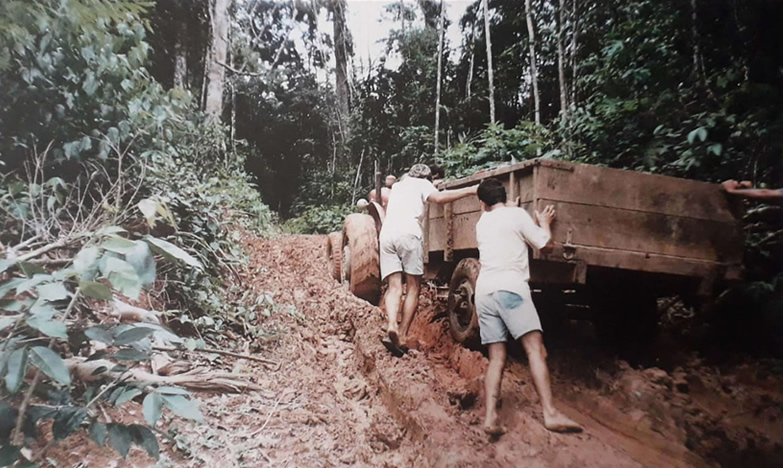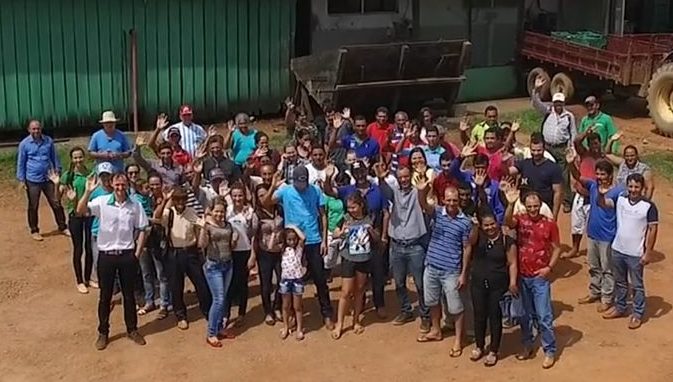Our roots: we value our history
We are farming families from different parts of Brazil. The Amazon was a mystery to us. Nova California (RO) was nothing like the California of the movies: the precarious infrastructure, the lack of support, and malaria outbreaks have made our mission even more arduous.

Back in 1984, demarcation by Incra (National Institute of Colonization and Agrarian Reform) was not as it is today. Back then, Incra demarcated the land and handed it over to families without any technical support, and with enormous pressure to cut down the forest. Early on, we realized the land in that area was nothing like those in the South and Southeast of Brazil: the open forest meant constant sun and the land perished. In the face of so much neglect and abandonment, we realized we needed to come together to transform our reality into something really worthy and new for all of us.
Respect for each group’s knowledge and the establishment of the cooperative
We started to meet with the region’s original peoples, the rubber tappers, and planned solutions to improve everyone’s lives, seeking alternatives that respected the climate and the way of life of local peoples. We combined the knowledge on organization and cooperation brought by peoples from other states with regional knowledge about the forest. We started to elaborate a project for Agroforestry Systems, the so-called SAFs, using the region’s native and well-known plants, which bear rich fruit. This reunion marked the onset of our social organization. In 1989, RECA – Consortium and Densified Economic Reforestation Project – was officially founded.
Today, the families participating in RECA are growing and we feel at home in Nova California. Respect for the Amazon guarantees production all year round, as well as the preservation of biodiversity. We are connected with the forest to provide the best fruits and products with quality, flavor and origin.
We are RECA: the Consortium and Densified Economic Reforestation Project. A cooperative comprising more than 300 farming families. We are very proud of our origins and of each of the farming families managing the SAFs. We are currently divided into 10 groups of members in the region, with large production capacity throughout the year.

Where we are
RECA is on the border of Rondonia, Acre, Amazonas and Bolivia. It is 360 km away from Porto Velho, Rondonia’s capital, and 150 km from Rio Branco, Acre’s capital. Our production is shipped countrywide, in compliance with standards to ensure product quality.
Producing with respect and exceeding goals
RECA’s SAF plantations comprise over 40 species to include fruit, timber, and medicinal trees and plants. We produce bacaba, copaiba, dragon’s blood, rambutan, rubber and other species, and can process large and small quantities with quality. Our small production of acerola, passion fruit, pineapple, guava, honey, deserts, jams and liqueurs can be found in our physical retail store, located in Nova California (RO).
As regards wholesale, we market what we produce in our 1,000 hectares:
- Processing over two million kilos of fruit
- More than 450,000 kilos of cupuaçu pulp
- More than 180,000 kilos of açai pulp
- More than 100,000 kilos of dried Brazil nuts
- 10,000 kilos of Brazil nut oil
- 120,000 kilos of fermented and dried cupuaçu almonds
- 40,000 kilos of cupuaçu butter
- Around 90,000 kilos of jarred peach palm hearts-of-palm
- More than 30,000 kilos of treated peach palm seeds
- Over 2,000 kilos of andiroba oil
(Data updated in the first half of 2020)




